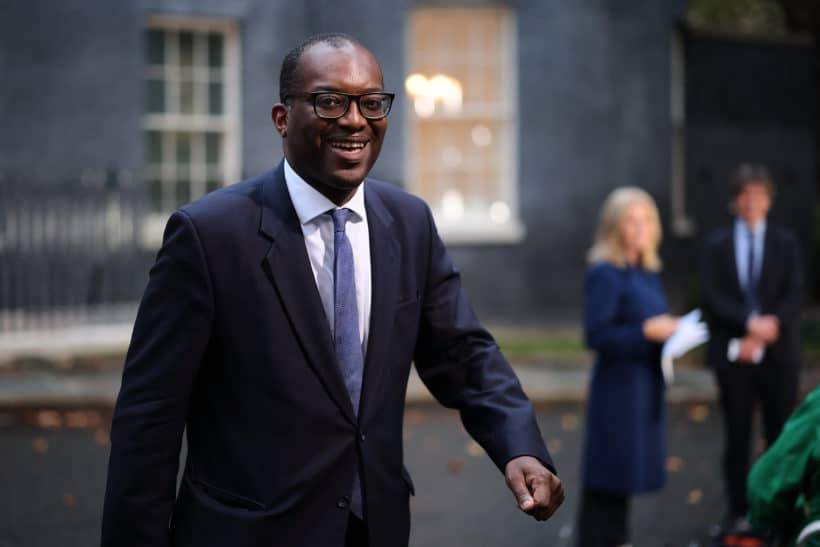
Rob Pinney | Getty Images News | Getty Images
LONDON — The U.K. government on Monday reversed a planned scrapping of the top rate of income tax, after a public backlash and major market turbulence.
“It is clear that the abolition of the 45p tax rate has become a distraction from our overriding mission to tackle the challenges facing our economy,” Finance Minister Kwasi Kwarteng said in a statement.
“As a result, I’m announcing we are not proceeding with the abolition of the 45p tax rate. We get it, and we have listened.”
The cuts were poorly received by financial markets and a scrapping of the 45% tax paid on incomes over £150,000 ($166,770) was seen as politically toxic as Brits deal with a cost-of-living crisis.
In the days following their announcement, the pound dropped to an all-time low, mortgage deals were pulled from the market and U.K. government bonds began to sell-off at a historic rate, causing the Bank of England to begin a temporary purchase program to calm volatility.
Pound briefly jumps
The British pound rose sharply Monday morning on reports that the U.K. government would announce the U-turn. Sterling was 0.8% higher against the dollar at one stage, but dipped to $1.1212 by 7:30 a.m. London time after the formal announcement. It takes it back to the level it was at before Kwarteng unveiled a raft of tax cuts on Sept. 23.
With the ruling Conservative Party plunging in opinion polls since the so-called “mini budget,” which was also criticized by the International Monetary Fund in a rare move, several of its own politicians have spoken out against the proposals.
Major U-turn
Grant Shapps, the former transport secretary, said in a BBC interview Monday morning the reversal in the top rate tax cut was a “sensible response” because a tax cut for “the people who need them least … jarred for people in a way which was unsustainable.”
It represents a major and humiliating U-turn for new Prime Minister Liz Truss, who was insisting as recently as Sunday she was “absolutely committed” to the cut.
She also revealed the decision was taken by Kwarteng and had not been announced to her whole cabinet. The plan would have delivered an average £10,000 annual benefit to the country’s 660,000 top earners, the Treasury had said.
Truss said in a tweet Monday: “The abolition of the 45pc rate had become a distraction from our mission to get Britain moving.”
“Our focus now is on building a high growth economy that funds world-class public services, boosts wages, and creates opportunities across the country.”

